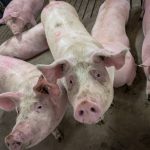World No. 2 soy grower Brazil has launched a program to produce more GMO-free seed as modified varieties marketed by multinational biotech firms are squeezing out the conventional type. The program will focus on Brazil’s top soy state, Mato Grosso, and comes in response to growers’ increasing difficulty in finding sufficient conventional soy seed to





